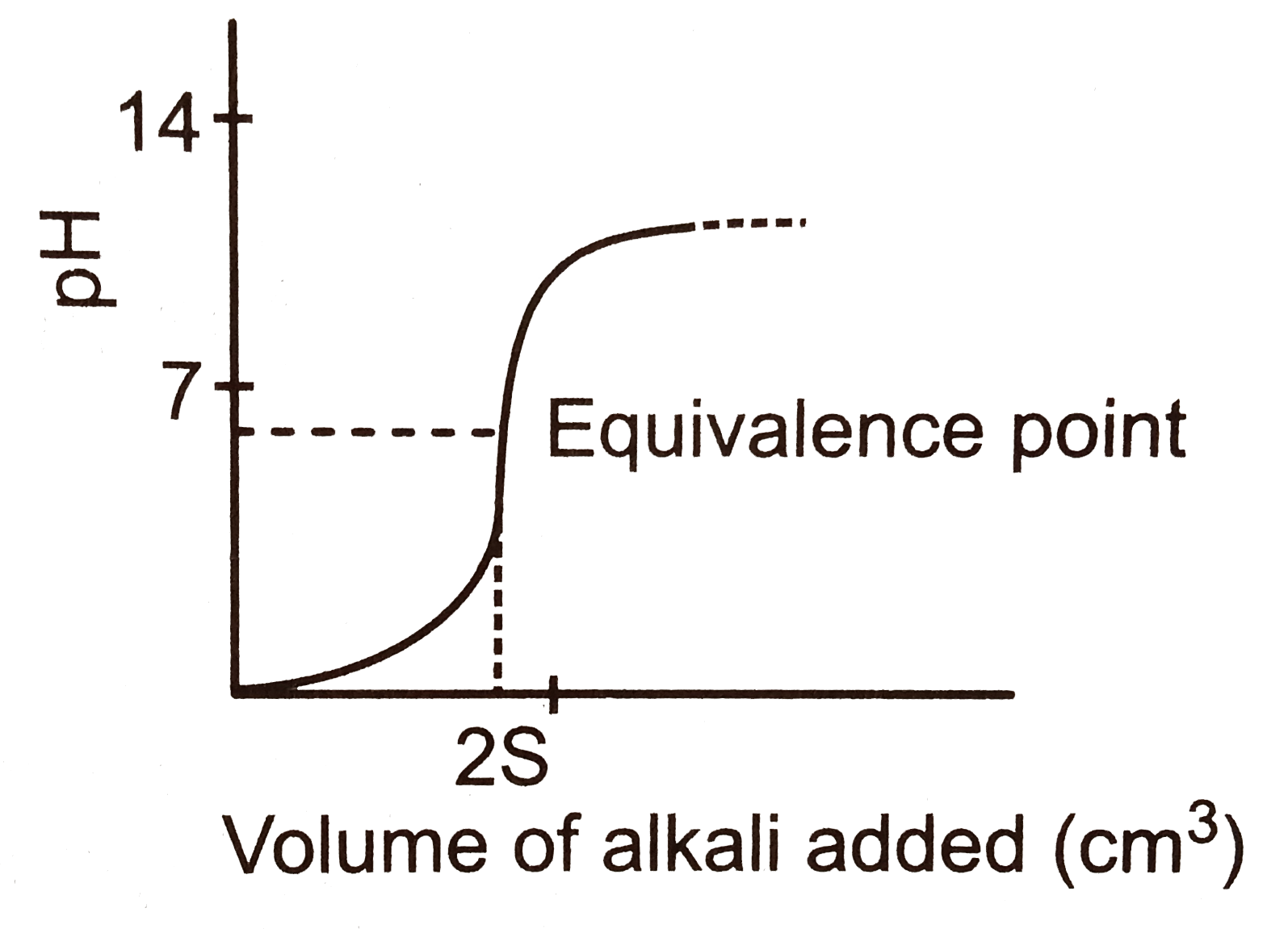The conjugate of a strong acid is always a weak base.
The correct Answer is:T
To solve the question "The conjugate of a strong acid is always a weak base," we can follow these steps:
1. Understanding Strong Acids:
- A strong acid is defined as an acid that completely dissociates in water. This means that when a strong acid is dissolved in water, it donates all of its protons (H⁺ ions) to the water.
2. Identifying Conjugate Bases:
- According to the Bronsted-Lowry theory, when an acid donates a proton, it forms its conjugate base. The strength of the conjugate base is inversely related to the strength of the acid. Therefore, if the acid is strong, its conjugate base must be weak.
3. Example of a Strong Acid:
- Take hydrochloric acid (HCl) as an example. HCl is a strong acid because it completely dissociates in water:
HCl→H++Cl−
- Here, HCl donates a proton (H⁺) to water, forming the chloride ion (Cl⁻) as its conjugate base.
4. Analyzing the Conjugate Base:
- The chloride ion (Cl⁻) is a weak base because it has very little tendency to accept protons. This is characteristic of the conjugate base of a strong acid.
5. General Rule:
- The general rule is that strong acids have weak conjugate bases. This is a fundamental concept in acid-base chemistry and is consistent across different strong acids.
6. Conclusion:
- Therefore, the statement "The conjugate of a strong acid is always a weak base" is correct based on the principles of acid-base theory.
- A strong acid is defined as an acid that completely dissociates in water. This means that when a strong acid is dissolved in water, it donates all of its protons (H⁺ ions) to the water.
- According to the Bronsted-Lowry theory, when an acid donates a proton, it forms its conjugate base. The strength of the conjugate base is inversely related to the strength of the acid. Therefore, if the acid is strong, its conjugate base must be weak.
- Take hydrochloric acid (HCl) as an example. HCl is a strong acid because it completely dissociates in water:
HCl→H++Cl−
- Here, HCl donates a proton (H⁺) to water, forming the chloride ion (Cl⁻) as its conjugate base.
- The chloride ion (Cl⁻) is a weak base because it has very little tendency to accept protons. This is characteristic of the conjugate base of a strong acid.
- The general rule is that strong acids have weak conjugate bases. This is a fundamental concept in acid-base chemistry and is consistent across different strong acids.
- Therefore, the statement "The conjugate of a strong acid is always a weak base" is correct based on the principles of acid-base theory.
Topper's Solved these Questions
- EQUILIBRIUM BOOK - ICSECHAPTER - EQUILIBRIUM EXERCISE - FILL IN THE BLANKS TYPE QUESTIONS
34 Videos
- EQUILIBRIUM BOOK - ICSECHAPTER - EQUILIBRIUM EXERCISE - NUMERICAL PROBLEMS
13 Videos
- EQUILIBRIUM BOOK - ICSECHAPTER - EQUILIBRIUM EXERCISE - OBJECTIVE (MULTIPLE CHOICE ) TYPE QUESTIONS
114 Videos
- ENVIRONMENTAL CHEMISTRY BOOK - ICSECHAPTER - ENVIRONMENTAL CHEMISTRY EXERCISE - NCERT TEXT-BOOK EXERCISE
20 Videos
- HYDROCARBONS BOOK - ICSECHAPTER - HYDROCARBONS EXERCISE - NCERT TEXT-BOOK EXERCISES
46 Videos
Similar Questions
Knowledge Check
Conjugate base of a strong acid is
Aa weak baseBa strong baseCneutralDa weak acid.Assertion : The heat of neutralisation for a strong acid and a weak base is always equal to -57.1 kJ.
Reason : One gram equivalent of a strong acid always neutralises one gram equivalent of a weak base.AIf both Assertion and Reason are CORRECT and Reason is the CORRECT explanation of the Assertion.BIf both Assertion and Reason are CORRECT but Reason is not the CORRECT explanation of the Assertion.CIf Assertion is CORRECT but Reason is INCORRECT.DIf Assertion is INCORRECT but Reason is CORRECT.Assertion : Weak acids have very strong conjugate bases while strong acids have weak conjugate bases.
Reason : Conjugate acid - base pair differ only by one proton.AIf both assertion and reason are true and reason is the correct explanation of assertion.BIf both assertion and reason are true but reason is not the correct explanation of assertion.CIf assertion is true but reason is false.DIf both assertion and reason are false.

The graph represents the titration curve for :
a.Strong acid and strong base
b.Strong acid and weak base
c.Weak acid and strong base
d.Weak acid and weak base
View SolutionDegree of hydrolysis (α) for a salt of strong acid and weak base is :
View Solutionwhich of the following plots will obtained for a conductometric titration of strong acid against a weak base?
View SolutionThe conjugate base of strong acid in the reaction
CH3COOH+HCl⇔Cl−+CH3COOH+2 will be
View SolutionThe heat of neutralization of a strong acid by a strong base is a constant because :
View Solution
